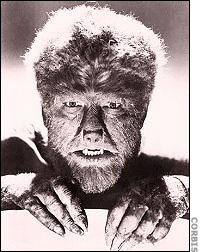Build the World
 I’ve developed a new taste for other-worldly paranormals lately. You know the ones I’m talking about—where the author has come up with an alternate universe peopled with unlikely heroes and heroines. The Egyptian underworld actually exists! There’s a parallel demon society! Fairies live in a mound outside St. Louis! Done well, these paranormals are a lot of fun. Granted they take a certain amount of “willing suspension of disbelief,” and they frequently require you to sort of ride along with the alien world for a while because the author can’t really stop and explain things. Well, she could, but if she did the entire narrative would come to a screeching halt. Not a good idea.
I’ve developed a new taste for other-worldly paranormals lately. You know the ones I’m talking about—where the author has come up with an alternate universe peopled with unlikely heroes and heroines. The Egyptian underworld actually exists! There’s a parallel demon society! Fairies live in a mound outside St. Louis! Done well, these paranormals are a lot of fun. Granted they take a certain amount of “willing suspension of disbelief,” and they frequently require you to sort of ride along with the alien world for a while because the author can’t really stop and explain things. Well, she could, but if she did the entire narrative would come to a screeching halt. Not a good idea.
The really tricky thing about this particular kind of paranormal (as opposed to the sort of “normal” werewolf or vampire tale) is coming up with a functioning universe. The best of these books manage to mix the mundane (apartments, cars, Starbucks fixations) with the totally strange (supernatural beings who appear at unexpected times, arcane tools that can be used for strange and not-very-wonderful purposes). If the mundane is recognizable, you’re more likely to accept the totally strange.
The other important element in all this is the nature of the characters who populate this world. Supernatural beings can’t be too supernatural. That is, they’ve got to retain enough humanity to allow a reader to understand and sympathize with their reactions. It’s a tricky mix because a demon who doesn’t seem like a supe isn’t going to hold your interest, but neither will a demon who doesn’t have any human reactions.
But the most crucial thing in all of this world-building is that the author has to play fair. She can’t conceal crucial facts about the world until they become convenient to reveal. This is similar to the major rule in mysteries that the author can’t withhold a crucial clue from the reader until the mystery is solved. The reader has to be given the facts and given the chance to solve the mystery on her own.
I thought about this lately when I was reading a largely enjoyable demon-world paranormal. The hero was one of those exotic paranormal breeds—half vampire and half werewolf. He’d gotten himself into a bad situation where his circumstances were threatening the life of the heroine, his beloved. And so he had another character kill him. Shocking. A show stopper.
And then in the next chapter we find him being revived and bitten because apparently the rules of his clan said that he could be reborn without the werewolf half. Which took care of all his problems. At that point, I found myself going, “Hold it! At what point did you tell us this was possible? And if it was possible, why did he wait until now?” The author had seemingly availed herself of a last-minute save by altering the rules of her universe to make it happen.
And that’s not fair. Not really. When you set up your universe, you have to let the reader understand how it works. And once you’ve gotten the universe established, you have to keep those rules in place. It’s not fair to suddenly say, “Oh I forgot to mention—in this world vampires aren’t affected by sunlight.” And it’s really not fair to say, “Oh I forgot to mention, although in most cases werewolves die when this happens, in this particular instance, he doesn’t.”
I sympathize with paranormal authors—they’ve got a tough row to hoe. I’ve even tried writing some paranormals of my own (which some day someone may want to publish), so I know how complicated it is to keep all the rules straight. Nonetheless, if you want me to visit your world, you need to make that world a place that functions predictably. I don’t mean boring; I do mean comprehensible. And if it’s comprehensible, I’ll play along. Even if it does involve twice-born werewolf vampires.
Posted in Blog • | Be The First To Reply!








